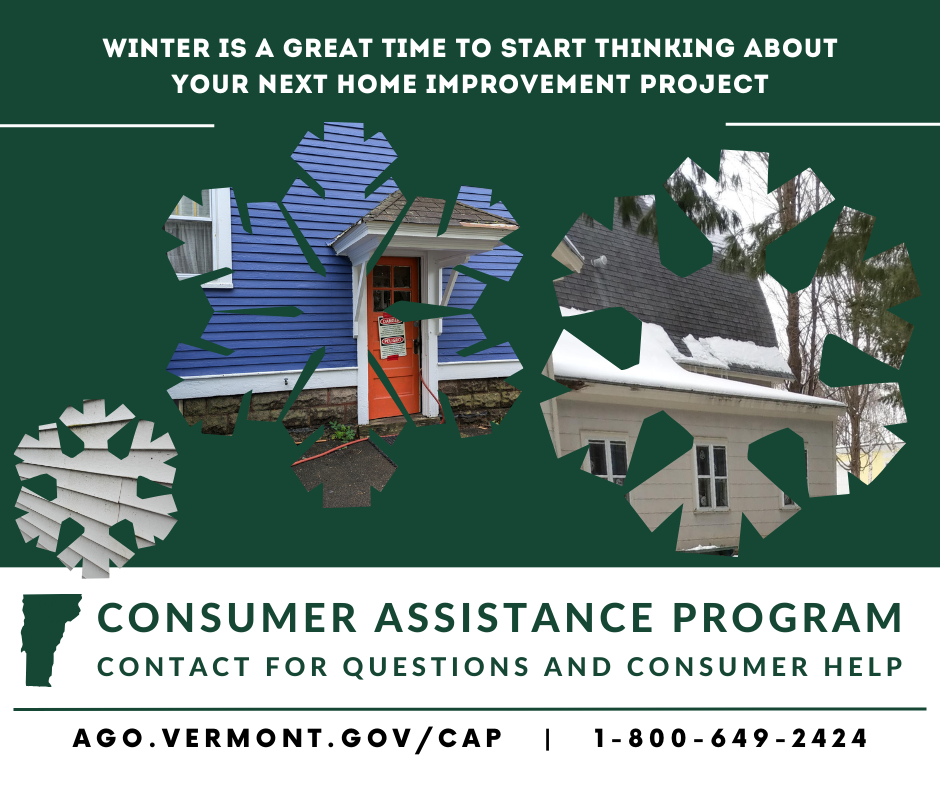“This will end my business operations.”
“I can’t afford to stay open.”
“I am just trying to operate my business.”
Vermont small businesses have reported substantial losses from scams. With more than 76,000 small businesses in the state, representing 99% of Vermont businesses and employing 60% of Vermont’s employees, small businesses are the backbone of Vermont’s economy. We can’t afford for businesses to experience scams. And yet, annually, businesses increasingly encounter new and different scam variations.
When businesses are scammed operations are at risk to be shut down. Their consumers are impacted, too. Whether the scam involves the breach of consumer personal information on file with the business or impacts individuals directly, such as when real estate sales transactions are intercepted. Being aware of the scams is one step to prevention. Remaining vigilant about the services, technologies, and training available to businesses has become even more important.
Learn more about the types of scams impacting businesses. [Link to blog outlining the scams, w/ pie chart of Top 10 impacting businesses]
In a digital age, protecting your small business against fraudulent activity can be difficult, but there are multiple safeguards available to help you avoid scams, protect your business, and keep your customers safe.
Payment Card Industry Security Standards Council (PCI Compliance) are standards outlined for the financial industry to protect data and establish safe payment systems worldwide.
- PCI compliance of a business payment system helps to protect personal information.
Multi-Factor Authentication can help ensure payments are legitimate.
- Requires users to provide more than just a password to confirm their identity.
- Information will be something the user has, like a one-time verification code.
Payment Gateways are services that administer electronic payments (Ex. PayPal, Stripe, Square).
- Encrypts customer information.
- Sends encrypted payment information between banks.
- Intended to safeguard the information of all parties involved in the transaction.
Payment Processing Systems are the systems where payments are processed, or the Point-of-Sale system (POS), like a terminal or similar software.
- Secure payment processors use chip readers and biometrics to authenticate payments.
Fraud Detection and Prevention implementation adds another layer of protection.
- Use the Address Verification Service (AVS) to compare the customer billing address to the customer address that the card issuer has on file.
- Require that consumers enter the Card Verification Value (CVV) to reduce the risk of fraudulent use.
- Monitor transactions: Regularly review transactions for suspicious activities and set up alerts for unusual patterns.
Train Staff: Your best defense is an informed workforce.
- Train your staff to properly use payment systems and follow security standards for every transaction, including internally dispersed funds.
- Stay informed about how common frauds may affect your business and make sure all employees are aware about how to avoid them.
Resources
The Vermont Small Business Development Center (VtSBDC) provides free guidance to Vermont small business owners.
The Small Business Association connects businesses to state and federal resources and an online learning guide.
When a fraud incident occurs, you can report it to the Consumer Assistance Program. This office tracks scam trends to educate the public and can provide recovery support resources.
References:
https://consumer.ftc.gov/articles/use-two-factor-authentication-protect-your-accounts
https://www.ftc.gov/business-guidance/credit-finance/payments-billing
https://www.fiscal.treasury.gov/otcnet/card-processing.html
https://www.federalreserve.gov/paymentsystems.htm
https://advocacy.sba.gov/wp-content/uploads/2023/11/2023-Small-Business-Economic-Profile-VT.pdf


